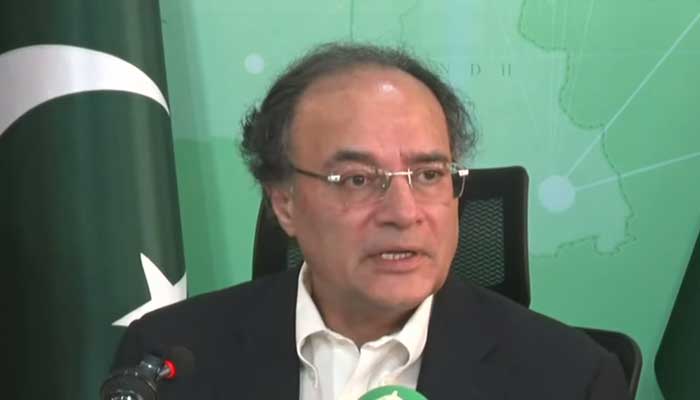150,000 vacant posts, ministry to be axed in govt’s cost-cutting push
Finance minister says cabinet greenlights abolishment of 60% vacant seats in bid to reduce expenditures
In an effort to reduce administrative costs, the government will eliminate 150,000 vacant positions, dissolve one ministry, and merge two others, Finance Minister Muhammad Aurangzeb announced, as part of reforms agreed upon with the International Monetary Fund (IMF) under $7 billion loan deal.
The IMF Executive Board approved the loan agreement on Wednesday, while State Bank of Pakistan (SBP) received first tanche of approximately $1.03 billion (SDR 760 million) on Friday under the 37-month Extended Fund Facility (EFF) programme.
Addressing the media in Islamabad on Sunday, he said after the federal cabinet’s approval, the rightsizing committee had decided to scrap 60% of the vacant seats, which would help reduce the expenditures.
The finance czar, while giving details of the government’s measures, the Capital Administration and Development Division (CADD) ministry would be dissolved.
A government spokesperson on September 1 told Geo News that scores of high-ranking officials would be put on the chopping block.
“The rightsizing committee has reviewed six ministries so far, in the first phase. Dissolution of one ministry has been approved, while two others will be merged,” he had said.
Whereas, the cabinet committee on institutional reforms on August 16 recommended curtailing 150,000 vacant positions, banning contingency recruitment, and outsourcing non-core services like cleaning, janitorial work, which would gradually phase out many positions in grades 1 to 16.
In a meeting, presided over by Prime Minister Shahbaz Sharif, to reduce public sector size and expenses, a committee headed by the finance minister, had presented its recommendations for rightsizing the federal government departments.
The Ministry of Finance was asked to oversee the cash balances of other federal ministries.
The committee provided a detailed briefing on recommended reforms for five federal ministries: the Ministry of Kashmir Affairs and Gilgit Baltistan (GB), the Ministry of State and Frontier Regions, the Ministry of Information Technology and Telecommunication, the Ministry of Industry and Production, and the Ministry of National Health Services.
Addressing the media today, Aurangzeb said the government’s measures including securing the International Monetary Fund (IMF) bailout package would bring economic stability.
On expanding the tax net, he said the government had every kind of data that would be utilised in this regard. "Only 14% retailers are registered in the sales tax at the moment."
“We will be forced to block utility services of non-registered people,” he warned, adding the government had ended all the exemptions on tax.
“It is not appropriate to treat taxpayers and non-taxpayers alike. We are left with no option but to expand the tax net,” he added.
The federal minister also said the government would have to boost the efficiency of the Federal Board of Revenue (FBR) and for that reason 2,000 chartered accountants would have to be hired.
“The FBR’s ability to audit will also be enhanced. Hence, 2,000 tax audit experts will be appointed in the FBR.”
-
Will Warner Bros finalize deal with Paramount or stays loyal with Netflix's offer?
-
$44 billion Bitcoin blunder: Bithumb exchange apologizes for accidental payout
-
Global memory chip crunch puts spotlight on Apple; Will iPhone become more pricey?
-
Bitcoin plummets toward $60,000 as investors dump risky bets
-
Bitcoin crashes below $63K as regulatory pressure and market fears grow
-
Bitwise Crypto Industry innovators ETF: What investors should do in 2026?
-
Nintendo shares slide again as momentum fears grow
-
Gold, silver prices fallen sharply; What’s driving the drop?












